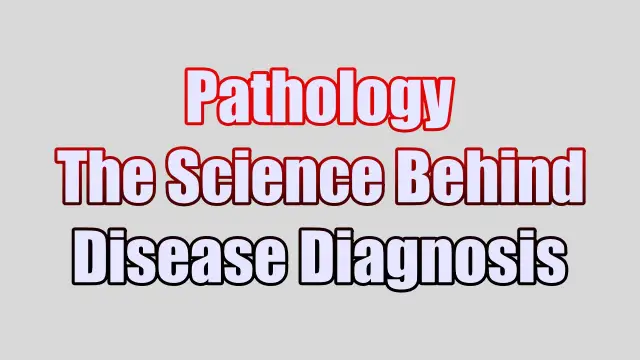Pathology is the fascinating study of disease. It plays a crucial role in understanding health issues by examining samples and diagnosing problems based on evidence. Pathologists are experts who interpret test results and physical signs to provide accurate diagnoses.
What is Pathology?
Pathology is a branch of medicine that focuses on understanding diseases. It involves analyzing tissues, blood, and other samples to identify health problems. By studying these samples, pathologists can determine the nature and cause of diseases. This information is vital for doctors to create effective treatment plans.
The Role of Pathologists
Pathologists are highly trained professionals. They work behind the scenes in laboratories, examining samples collected from patients. Their work is essential for diagnosing conditions like cancer, infections, and autoimmune diseases.
- Interpreting Test Results: Pathologists analyze lab results to identify abnormalities. For example, they may look for cancer cells in a biopsy sample or check for signs of infection in blood tests.
- Providing Expert Opinions: They often collaborate with other doctors to discuss findings and recommend treatment options. Their expertise helps guide patient care.
Types of Pathology
Pathology can be divided into several subfields, each focusing on different aspects of disease:
- Anatomical Pathology: This area involves examining tissues and organs. Pathologists look for changes that indicate disease, such as tumors or inflammation.
- Clinical Pathology: This branch focuses on laboratory tests. It includes blood tests, urine tests, and other analyses that help diagnose diseases.
- Forensic Pathology: Forensic pathologists investigate causes of death. They perform autopsies to determine how and why someone died, often in legal cases.
Speech Pathology vs. Pathology
It’s important to note that speech pathology is a different field. While it shares part of the name, speech pathology focuses on communication disorders. Speech pathologists help patients with speech impediments, language difficulties, and swallowing issues. They often work with individuals recovering from strokes or brain injuries.
Why is Pathology Important?
Pathology is vital for several reasons:
- Accurate Diagnosis: It helps doctors make informed decisions about patient care. An accurate diagnosis is the first step toward effective treatment.
- Research and Development: Pathologists contribute to medical research. Their findings can lead to new treatments and better understanding of diseases.
- Public Health: Pathology plays a role in tracking disease outbreaks. By studying samples, pathologists can identify trends and help control the spread of infections.
FAQs About Pathology
What does a pathologist do?
A pathologist studies samples to diagnose diseases and provide insights for treatment.
How is pathology different from other medical fields?
Pathology focuses on understanding diseases through laboratory analysis, while other fields may focus on direct patient care.
What types of samples do pathologists analyze?
Pathologists analyze tissues, blood, urine, and other bodily fluids to identify health issues.
Can pathology help in cancer diagnosis?
Yes, pathology is crucial for diagnosing cancer. Pathologists examine biopsy samples to determine the presence and type of cancer.
How does one become a pathologist?
To become a pathologist, one must complete medical school, followed by specialized training in pathology.
Conclusion
Pathology is a vital field that helps us understand diseases and improve patient care. Pathologists play a key role in diagnosing health issues and guiding treatment. If you have questions about your health, remember that pathology is an essential part of the medical process. Understanding this field can empower you to take charge of your health journey.

